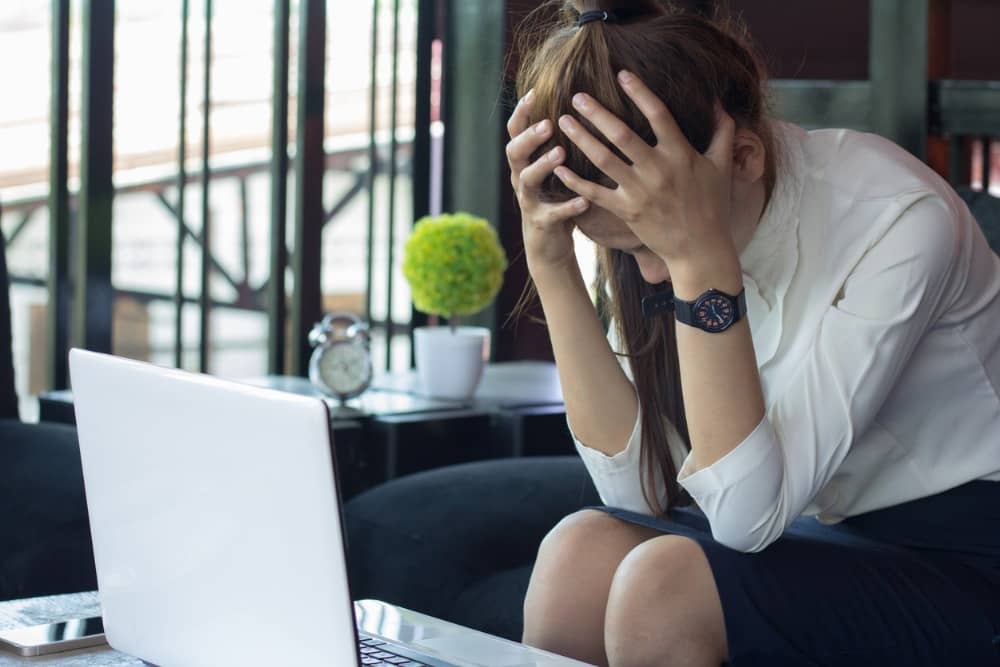What Does an Anxiety Attack Feel Like?

Roughly 31.1% of US adults experience an anxiety disorder at some point in their lives. An anxiety attack may be one of the most difficult experiences a person can go through, as they are often overwhelming and unpredictable. Anxiety manifests differently in every person, and not everyone will necessarily experience anxiety the same way. However, there are some common triggers and symptoms of anxiety attacks. If you are able to recognize the signs of anxiety, you can take steps to prevent an anxiety attack or mitigate its effects.
Symptoms of an Anxiety Attack
The symptoms of anxiety attacks may vary significantly. Some people may feel anxiety in the form of physical sensations such as a rapid heartbeat, feeling lightheaded or dizzy, nausea and difficulty breathing. Others may experience anxiety through psychological symptoms, such as being unable to concentrate on anything else but their anxiety, having difficulty speaking or forming sentences, racing thoughts, and feelings of dread or fear. Additionally, anxiety attacks may be accompanied by anxiety-provoking thoughts and memories.
In some cases, anxiety attacks can be triggered by life events or stress, such as a difficult work situation, the passing of a loved one, school, financial worries, or an illness. For others, anxiety attacks may seem to come out of nowhere and with no apparent trigger. If you have anxiety, it is important to take the time to understand your anxiety and recognize when an anxiety attack may be coming on.
Common Anxiety Attack Triggers
Knowing what triggers your anxiety attacks can be the first step in learning how to prevent them. Common triggers may include stressful situations, major life changes, worrying or ruminating thoughts, traumatic memories, or physical fatigue. Additionally, anxiety attacks may be triggered by lack of sleep, excessive caffeine intake, or certain medications and substances. If you notice a pattern of anxiety attacks, it may be helpful to keep a log of your anxiety and identify any possible triggers that could be setting off the anxiety.
Tips for Preventing Anxiety Attacks
Although anxiety attacks may be difficult to predict, there are steps you can take to reduce your anxiety and prevent attacks from happening. The next time you are feeling anxious, try the following strategies:
Breathing Exercises
When you are having an anxiety attack, you may notice that your breathing becomes rapid and shallow. Taking deep breaths to slow down your heart rate may reduce anxiety symptoms and stress. Try closing your eyes and taking slow, deep breaths while counting to four with each inhale and exhale.
Yoga and Meditation
Yoga and meditation are both great ways to reduce anxiety symptoms. Yoga helps to focus on the body and can be used as an outlet for anxiety. Meditation is a great way to clear your thoughts, relax physically and mentally, and help manage anxiety symptoms. If you are on the verge of an anxiety attack, try closing your eyes, clearing your mind, and taking deep breaths. If you can, find a peaceful place to practice meditation, such as a park or your backyard.
Avoid Drinking Alcohol and Smoking
Although it may be tempting to “self-medicate” anxiety with alcohol or smoking, these substances may exacerbate anxiety symptoms and make your attacks worse. Instead, it is better to practice healthy coping strategies and lifestyle habits. This may include getting enough sleep, eating a balanced diet, and practicing relaxation techniques.
Try Cognitive Behavioural Therapy
Cognitive Behavioural Therapy (CBT) helps individuals identify and change unhelpful thinking patterns, anxiety-inducing behaviors, and irrational beliefs. CBT can be used to manage anxiety symptoms and reduce anxiety attacks. This form of therapy also helps to improve anxiety-provoking situations and develop healthy coping strategies.
Get Some Exercise and Fresh Air
Getting the body moving may reduce anxiety symptoms and release tension. Try going for a walk or bike ride outside, or head to the gym. Exercise releases endorphins which may help boost your mood and energy levels. Additionally, getting fresh air and sunlight is another great way to clear your mind and reduce anxiety. When your anxiety is high, try going for a walk in nature or just sitting outside in the sun for a few minutes.
Overcome Your Anxiety With Mile High Psychiatry
Anxiety can be overwhelming and have a significant impact on your mental health. That’s why it’s essential to seek help when anxiety is affecting your daily life. At Mile High Psychiatry, we specialize in anxiety treatment and provide comprehensive assessments, medication management, and therapy services to help you find relief from anxiety symptoms. Contact us today to learn more about how we can help you manage and overcome anxiety.


